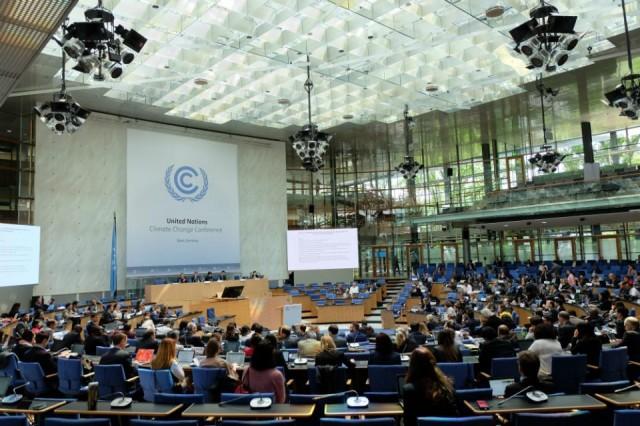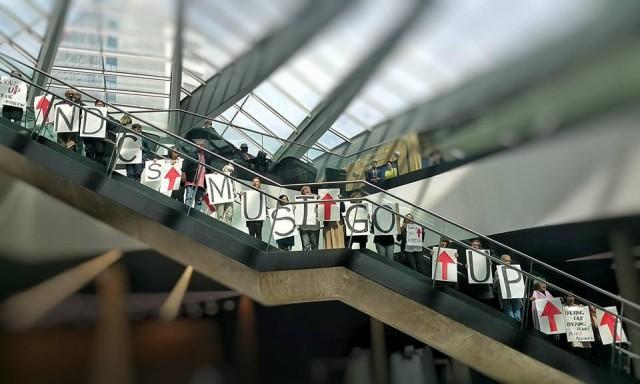US hesitation on Paris climate deal mirrors PHL commitment woes

BONN, Germany—The second half of this year’s first round of United Nations climate talks have begun, with little concrete to show for it.
These negotiations have been shadowed by the threat of the United States’ withdrawal from the Paris Agreement, particularly during the first two days, but the Trump administration has since announced that they will not decide on this until after the G7 meeting in Italy by the end of the month.
Delegates and observers alike are still debating on whether it would be helpful to keep the United States within the Paris deal if Trump will roll back Obama’s Climate Action Plan. But beyond that, negotiators from almost 200 countries continue to be deep in technical discussion - and debate - on how to make the Paris climate agreement a reality.
“Right now there is an impression that mitigation [negotiations] is moving faster than adaptation and loss and damage but those are also very critical to us as a country, like finance and technology,” said Climate Change Commissioner Vernice Victorio, who headed the delegation last week.
The Paris deal, agreed upon in 2015, aims to limit global warming up to 1.5 degrees Celsius, largely thanks to the leadership of the Philippines and over 40 other members of the Climate Vulnerable Forum.

Ian Rivera, national coordinator of the Philippine Movement for Climate Justice, and other Filipino civil society observers joined a recent action calling on countries to have more ambitious climate commitments, particularly in their Nationally Determined Contributions (NDCs), or the climate pledges called the building blocks of the Paris deal.
“For us, it is urgent that these talks in Bonn lead to clarify not only the rules of implementation of the Paris Agreement, but also the process of scaling up targets by all, especially the rich countries who fall very short of their fair share of global climate actions,” he said.
“There is still a possibility that the US will still stay within the Paris Agreement. We said we also had hesitations on our end as well,” Victorio shared. The commissioner has previously stated in hearings leading to the Philippines’ eventual ratification of the Paris Agreement that the country need not commit to the deal early.
“It was a new administration, they still had to study it. They had to understand and there were still misunderstandings and misconceptions. The President was committed to reduce poverty in the country and emission reductions were laid out there [in our commitment], so that became the main contention. But after a while when they realized that you can review these targets and these targets can be in line with your sustainable goals, then it was no longer an issue in the end,” she added.
In the end, President Duterte moved ahead faster, separate from the need for delay expressed by Victorio and more closely in keeping with Senator Loren Legarda - who championed the implementation of Paris and our domestic action plans.
As for our NDC, there has been no publicly visible progress for almost half a year on the country’s energy policy review, which was launched in June and would enable the country to revise its initial conditional pledge to reduce emissions by 70% by 2030. Victorio said the Climate Change Commission has yet to pin down exact dates for next steps.
“Well we have until 2020 to give our NDCs, but aside from the technical input we would need with our different stakeholders to agree on the process. I think the democratic way to do it is to agree on how to involve everyone,” Commissioner Victorio said.
Yet policy experts have cautioned all countries - not just the US - from fighting against the global momentum towards renewable energy.
A report launched in Bonn by Climate Action Tracker shows that the US is on track to double renewable energy from 2013 to 2020 independent of federal policy, while China and India are on track to overachieving their NDCs because of the drastic drops in prices of clean energy.
“Five years ago, the idea of either China or India stopping—or even slowing—coal use was considered an insurmountable hurdle, as coal-fired power plants were thought by many to be necessary to satisfy the energy demands of these countries,” said Bill Hare of Climate Analytics. “Recent observations show they are now on the way toward overcoming this challenge.”
“More and more businesses and investors are shifting their resources towards renewable energy and other climate friendly technologies, creating jobs and economic opportunities. The money will go to the countries most ambitious in fighting climate change,” warned Wael Hmaidan, international coordinator of the Climate Action Network. — TJD, GMA News
Denise M. Fontanilla is the climate policy coordinator of the Institute for Climate and Sustainable Cities.



